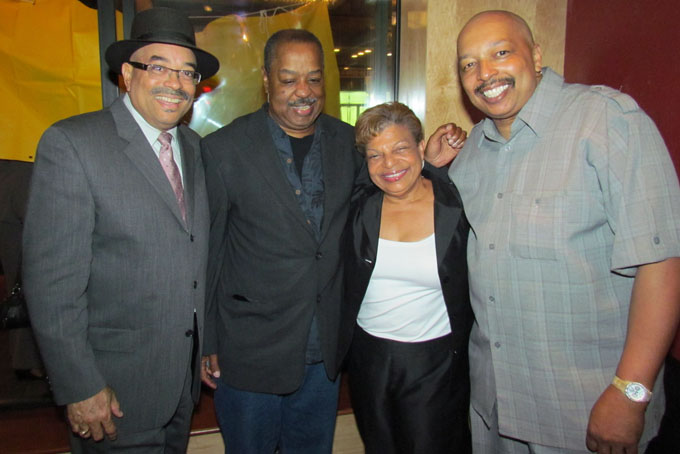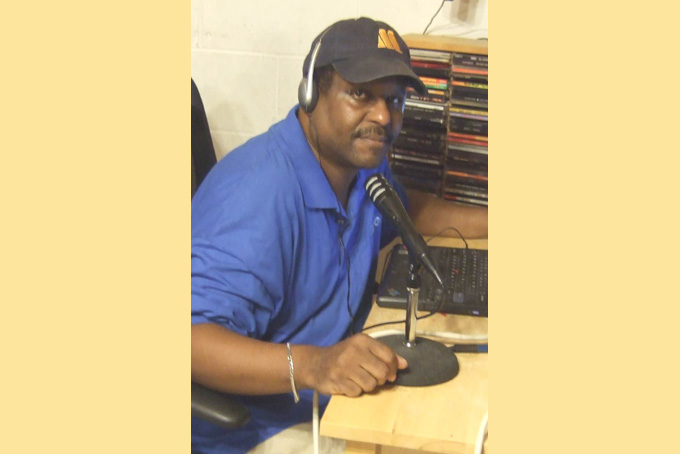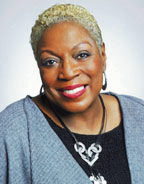
CHRIS MOORE, BROTHER MATT, DEBBIE PARKER AND SLY JOCK AT WAMO REUNION PARTY (Courier Photo/J.L. Martello/File)
Earlier this month, when Pittsburghers began discussing the possible return of a jazz radio station to the region, some in the Black community had just one question. Would any of the radio hosts on this new station be Black?
On May 31, Pittsburgh Public Media, a nonprofit that operates the online Pittsburgh Jazz Channel, closed on the sale of WVBC-FM. The channel features some of the announcers from WDUQ-FM, a local station that previously carried jazz programming, but none of them are African-American.
FRANK GREENLEE (Courier Photo/J.L. Martello/File)
“It’s what they’ve done historically. When WDUQ had jazz on the air there wasn’t an on air Black announcer period,” said Frank Greenlee, who initially voiced concern over the proposed new station.
“I just hope they don’t perpetuate the same thing.”
WDUQ eliminated their jazz programming in 2011 when new owners purchased the station. Pittsburgh Public Media was formed by WDUQ staffers who had hoped to purchase the station, but their bid was ultimately not accepted.
“All of a sudden when they went off the air they tried appealing to Black people when they never had any Black announcers on the air,” Greenlee said.
“It’s ludicrous to have a jazz station with music that was created by Black people and not be purveyors of it.”
The paltry numbers of Black announcers on the air expands further than Pittsburgh’s stations. In 1997 minorities made up 20 percent of the broadcasting work force across the United States.
“A young Black person wanting to be in broadcasting has no way to learn how to be,” Greenlee said.
“There are some professional Black announcers that are capable of doing some broadcasting but they’re not on the air.

BOB DAVIS
Longtime Internet radio host and Soul-Patrol.com CEO Bob Davis said the lack of Blacks on the air is indicative of larger trend throughout radio.
“Radio personalities in all genres are diminishing,” Davis said.
“One of the reasons is the programming technology has changed so that radio operators don’t feel the need to have personalities because personalities interfere with the programming. Everything is programmed from a centralized location and it’s most often not local.”
Still, he and Greenlee both agreed Pittsburgh needs a Black radio station that appeals to all segments of the African-American population, not just the under 30 crowd currently being catered to on the newly reinvented WAMO.
He said the lack of Black radio announcers is more apparent because of the historical significance of Black radio in the community.
“It’s more pronounced in Black radio because the Black radio personalities in the past were such an important thing in our community,” Davis said.
“Their absence is more profound than in the White community.”

BEV SMITH
Pittsburgh radio legend Bev Smith, who recently fought her way back on the air after losing her job with American Urban Radio Networks two years ago, said disparities exist across all types of media. She also said the disparities are especially pronounced for Black women in the media.
“I was looking at Channel 4 and you don’t have one Black woman on the news,” Smith said.
“Black women are missing.”
Smith said the Black community should advocate for increased Black presence in radio and television in the same way they advocate for other causes. She also said African-Americans should advocate for more positive images of Blacks to be shown in the media.
“We’re here. We were here from the beginning. Why is it we must constantly fight to be shown,” Smith said.
“What we need is a boycott of those businesses. I’m tired of begging when we have the buying power to influence them.”